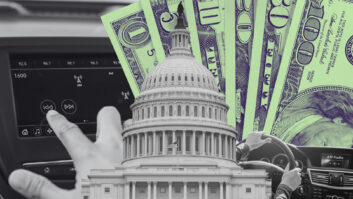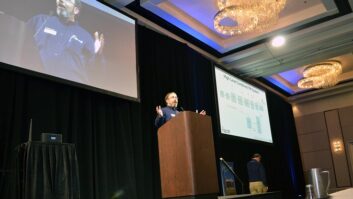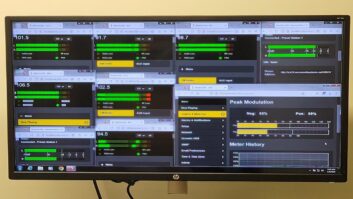FCC Commissioner Ajit Pai, who can continue to work despite the agency shutdown because of how his position is funded, says he hopes the commission will soon act on a draft order addressing AM revitalization.
Speaking to the board of the National Religious Broadcasters at National Harbor in Maryland, near Washington, yesterday, Pai encouraged broadcasters to tell the commission what they think of its proposals, once those are released. His comments were similar to what he said in a video presentation to the recent Radio Show.
“Once the FCC formally proposes changes to improve AM, it’ll be your turn. I encourage you and all religious broadcasters to make your voices heard. Let us know what you think of our proposals. Which ones do you support? Which ones raise concerns? What other ideas that aren’t mentioned should we be considering? To get this right, we need to hear from you,” Pai said.
One simple concept would be to make it easier for owners to improve their signals and find suitable antenna sites, according to Pai, who also said the agency should make it easier for AM stations to get and use FM translators.
He favors the effort. Though not calling it by name, Pai referenced the “Tell City Waiver” petition currently pending at the commission to make it easier for AM stations to move FM translators. But the FCC should go further and open up a window where any AM station without an FM translator can get one so long as there is available spectrum, said Pai. The concept is one that was discussed and backed by several attendees at the recent Radio Show.
Noting that the long-term future of AM is less clear, he said, there isn’t a consensus on the steps the commission needs to take for the AM band to be alive and well 10 or 15 years from now. The GOP commissioner said “we need to be bold and slip the surly bonds of conventional wisdom. We need to experiment with ideas like digital AM, synchronous transmission systems, and nighttime power level adjustments, and see what will work.”
Switching to fundraising, the commissioner is all for allowing noncommercial stations to fundraise for third-party charities, something the commission proposed to reform a year ago but has yet to finalize. “For religious broadcasters, this is especially important. Instead of living by this rule, you would be able to live by your faith,” said Pai.
The commission should allow noncommercial educational stations to use up to 1% of their annual airtime to raise funds for third-party nonprofit organizations. That’s a little less than 88 hours per year and less than 15 minutes per day, according to Pai.
Currently noncommercial broadcasters seek waivers to conduct third-party fundraising after a natural disaster, for example.












